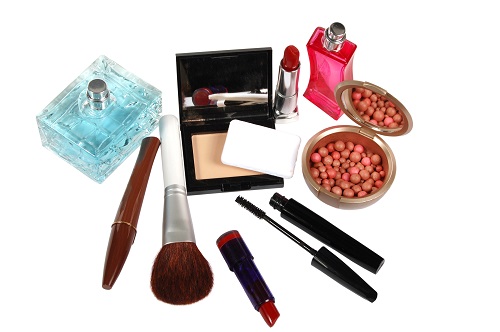The global halal cosmetics market size will reach USD45.32 billion in 2023, and is forecast to grow to USD 162.41 billion by 2033, with a registered CAGR of 17.3% from 2023 to 2033. The positive growth is attributable to a strong demand for products that contain safer ingredients. But while consumers equate halal certification with a level of safety and quality, cost is also an impediment to product demand in some countries.
Natural and eco-friendly cosmetics are among products that remain popular among today’s consumers, with demand for plant-based and natural products increasing steadily in recent years.
Halal certified cosmetics are made from natural ingredients, and specifically are free from any animal fat or chemicals that are considered harmful. Many cosmetic and personal care brands offer products that contain natural ingredients like botanical extracts and minerals. They are also vegan- or halal-certified to be competitive in the cosmetics market.

(Photo © Natalya Aksenova | Dreamstime.com)
As such, halal certification is equated with safety and quality standards when it comes to ingredients and production. Halal cosmetics can be manufactured from halal materials, such as oils, organic solvents or proteins, vitamins, plants, extracts, and antioxidants. They are made from a complex mix of all these ingredients, according to halal standards. The manufacturers monitor products closely to ensure they meet the required halal standard.
Islamic law forbids the use of ingredients that are derived from pig, blood, reptiles, and insects. The law states that products should be manufactured, processed, stored, and transported under clean conditions. Cosmetics certified by Halal are safer and better than those that are commonly available. This factor is another reason for the increased popularity of cosmetics with halal certification.
Rising acceptance of Halal-certified cosmetics supported by the government supports Halal products are more in demand due to the growing Muslim population. Malaysia has more than 50% Muslim population. They prefer products with Halal certification, such as cosmetics.
According to the Government of India (GoI), India's Muslim population was over 10.9% in 2019. And their number is rising year after year. Because of their growing awareness of halal products, non-Muslim customers prefer to purchase cosmetics that are halal-certified. The cross-border selling of products is permitted in several countries including India, China, and Malaysia.
Meanwhile, as halal cosmetics can be pricier than regular cosmetics, the cost impedes product demand. Although safety and quality are important factors that affect buyers' buying decisions, price is still the dominant factor in this market. The price factor is driving consumers to shift from halal cosmetics to standard products in emerging markets like Brazil, India, and China. Higher prices are expected to limit the growth in the halal market over the forecast period.
Click for the entire market survey from Prudour Pvt Lmt

 iConnectHub
iConnectHub
 Login/Register
Login/Register Supplier Login
Supplier Login


























